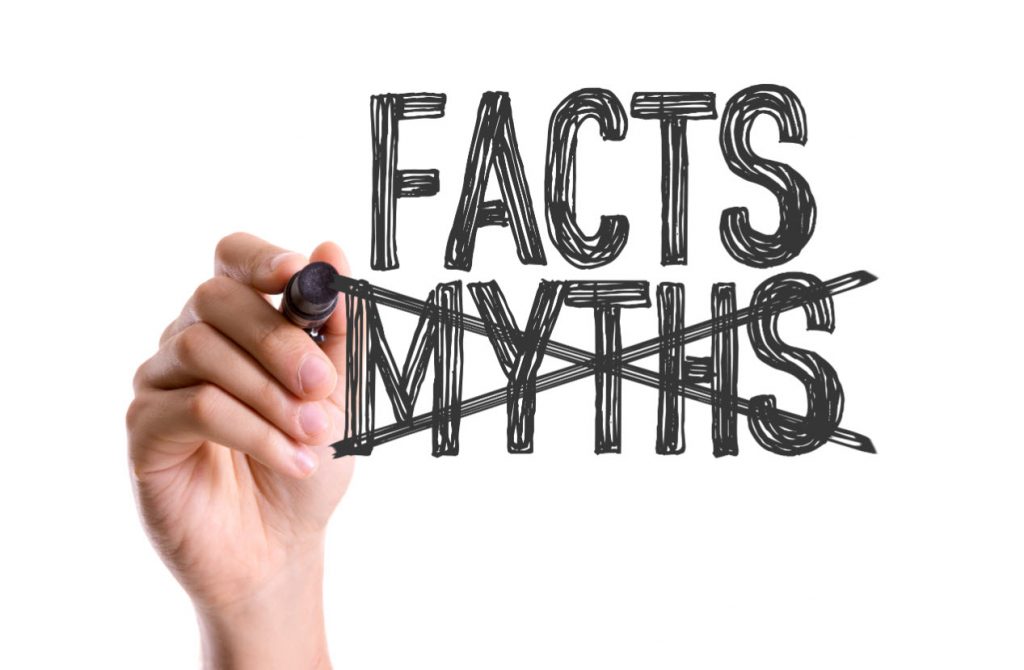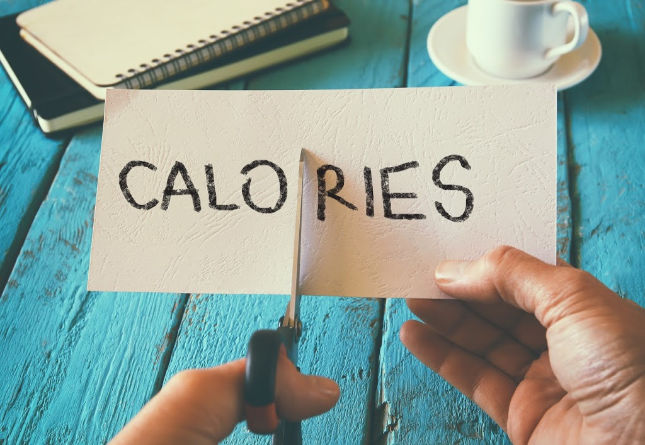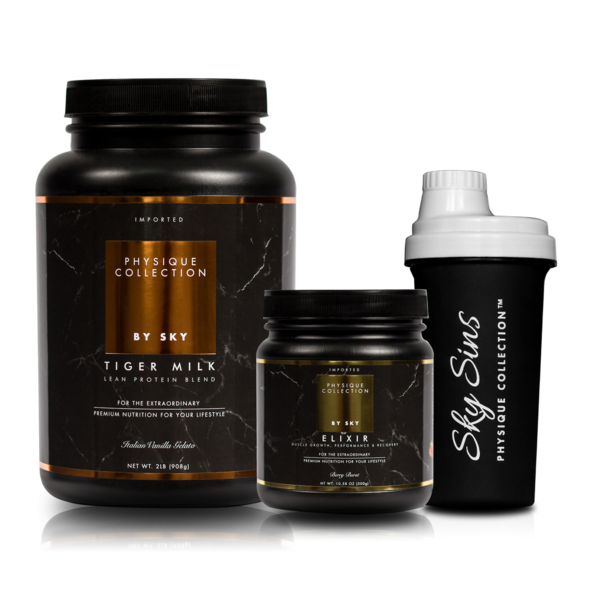
Almost everybody wants to get leaner and live a healthier life. You may have many friends who are following different diets or exercise regimens that are shedding fat like crazy. Some may even try to guilt you for not following the same lifestyle as them. You are not sure what is the truth anymore with all of the false information out there, but all you know is that you are beyond desperate to find a diet that will finally work for you. In this blog post you will be presented with some of the biggest nutrition myths.
Myth #1
“A Calorie Is Not A Calorie.”

No one ever wants to accept this or believe this. Both of these statements are myths that are perpetuated constantly by the general public and even people who are into fitness and nutrition. This is simply due to the misunderstanding of what a calorie actually is. A calorie is a unit of energy. It is a unit used to measure the energy needed to increase the temperature of water by 1° celsius. That is all that it is. So when someone says not all calories are created equal, this person is not actually referring to calories; he/she is unwittingly referring to the macronutrients (carbs, fats, protein, and also alcohol) and micronutrients – think vitamins and minerals.
When measured out equally, 300 calories of chicken breast is the same as 300 calories of chocolate chips. That is to say, the energy is the same. It is no different than asking, “What’s heavier, a bag of quarters that weighs 10 pounds or a bag of feathers that weighs 10 pounds?”. The weight is the same, and it is only the contents of the bags that are different. Quarters & feathers have different purposes. In the same sense, calories are calories. It is the macronutrients and the micronutrients that are different. So instead of saying the calories in chicken are not the same as the calories in chocolate chips, the correct statement should be: “The nutritional content in chicken is vastly different than the nutritional content of chocolate chips.”
Nutritional content refers to nutrients, which are our macros and micros. Calories are units of energy. Macros CONTAIN calories, but rest assured they are not calories themselves. This is where the confusion comes from. When people argue that not all calories are the same, they have the right idea most of the time, but they’re simply confused on what they’re talking about. So next time some one says that, you can kindly clear up the confusion for them.
Myth #2
”Starvation Mode”

A reasonable caloric restricted diet can certainly stall progress, but it isn’t due to the reasons that you are hearing from the masses. This is often termed as “Starvation Mode” – This term is often used out of context and most people take it to the extreme and truly believe “you won’t lose fat if you starve yourself”. This is why people don’t like the term.
“Starvation Mode” realistically means that while in a significant caloric deficit your body will slow down non-vital functions in order to maintain its current state (homeostasis). This means that NEAT (Non-Exercise Activity Thermogenesis) will slow down — Things like fidgeting, knee bouncing, pacing, etc. will stop. Things like cognitive function will also start to decline (if you ever had any friends who competed in body building shows, you may have heard a term called prep brain). Energy levels will be down from the low caloric intake and then people start to become more sedentary – no evening walks, decreasing the distance they would walk their dogs, no trips to the mall, or family outings – all things that cause energy expenditure (calories being used up).
All of that apparently causes “Starvation Mode”. Your body is NOT holding on to fat. Your body is SLOWING everything down in order to MAINTAIN homeostasis. In your typical dieter, the stress of dieting & hunger will increase cortisol levels & will A) cause muscle protein breakdown (muscle loss) & B) cause water retention, masking fat loss.
If you eat too little, you will starve to death. Period. Your body will do everything it can to prevent this and support vital functions. While you will use both fat & muscle for energy, your body will first utilize fat for energy, then muscle. This has been seen in those who are fasting for various reasons. An example that is easy to see is bodybuilders. People who practically starve themselves to leanness are able to maintain muscle mass and lose fat (yes, they increase protein and train to minimize that loss).
Sometimes you see someone who is NOT losing weight on very low calories. They are accurately tracking and they are not bingeing. Outside of the RARE metabolic disorder, they are not losing because this very low calorie intake is their current maintenance calories because of the DECREASE in NEAT and an INCREASE in cortisol. When we increase calories, they have more energy & are less stressed – this causes an INCREASE in NEAT and a DECREASE in cortisol. They are moving more due to more energy and their maintenance calories are now over what the increased calories are. Thus weight loss on more calories.
Quick Example-
You eat 1400 calories a day. This results in you being tired & also low activity (decreased NEAT). Which then leads to low TDEE(Total Daily Energy Expenditure) which equals stalled progress. You now decide to eat 1800 calories. You now have more energy and have more of a want to do activities. So you increase your NEAT. Which now gives you a higher TDEE.. Which equals weight loss.
Myth #3.
‘’BCAA Supplementation is useful for growth and recovery’’

BCAA’S are one of the most popular supplements on the market at the moment, and they have been for quite some time. There is a lot of misinformation circulating not just the internet, but word of mouth everywhere. From, supplement shop owners, from your personal trainer in your local gym, to even your close friends. I am sure you were given the ‘’hype’’ about BCAA’S and all of the magical benefits you will be provided once you add these to your daily supplement regimen. And while yes they are critical to your muscle tissue as well as most other tissues in your body, they provide no benefit when compared to a high quality leucine rich whey protein. To get the most benefit to improve your growth and recovery – eat your protein.
Protein is, by itself, a substantial source of BCAA and no further supplementation is required nor helpful. You get all the BCAA and EAA you need in your meals. BCAA, nor protein, aid in any feeling of recovery, added perceivable energy (beyond the calories consumed) nor any other of the fancy terms thrown about by the marketing press. They are simply a small but important part of protein as a whole, and work silently to build various tissues in the body. So save the money you would buy on your monthly BCAA haul, and treat yourself to a little something.
Not being able to identify what is true and what is false in the fitness community can be quite discouraging, but I hope that these myths being debunked along with the assistance of our great trainers at Resilient Fitness can help with pointing you in the right direction to tackling your goals this year with knowledge and confidence. Give us a call today at (561) 204-5033 so we can discuss how to book your first training assessment at Resilient Fitness.
Blake Bernstein, Personal Trainer
References-
1. Byrne NM, Wood RE, Schutz Y, Hills AP. Does metabolic compensation explain the majority of less-than-expected weight loss in obese adults during a short-term severe diet and exercise intervention? International Journal of Obesity (2005). 2012;36(11):1472–1478. doi:10.1038/ijo.2012.109.
2. Johannsen DL, Knuth ND, Huizenga R, Rood JC, Ravussin E, Hall KD. Metabolic slowing with massive weight loss despite preservation of fat-free mass. J Clin Endocrinol Metab. 2012;97(7):2489–2496. doi:10.1210/jc.2012-1444.
3. Rosenbaum M, Hirsch J, Gallagher DA, Leibel RL. Long-term persistence of adaptive thermogenesis in subjects who have maintained a reduced body weight. Am J Clin Nutr. 2008;88(4):906–912. Available at: https://ajcn.nutrition.org/content/88/4/906.long.
4. Goele K, Bosy-Westphal A, Rumcker B, Lagerpusch M, Muller MJ. Influence of changes in body composition and adaptive thermogenesis on the difference between measured and predicted weight loss in obese women. Obes Facts. 2009;2(2):105–109. doi:10.1159/000210369.
5.Buchholz, A C, and D A Schoeller. “Is a calorie a calorie?” The American journal of clinical nutrition., U.S. National Library of Medicine, May 2004, www.ncbi.nlm.nih.gov/pubmed/15113737.
6. Dieter, B P, et al. “The data do not seem to support a benefit to BCAA supplementation during periods of caloric restriction.” Journal of the International Society of Sports Nutrition., U.S. National Library of Medicine, 11 May 2016, www.ncbi.nlm.nih.gov/pubmed/27175106.